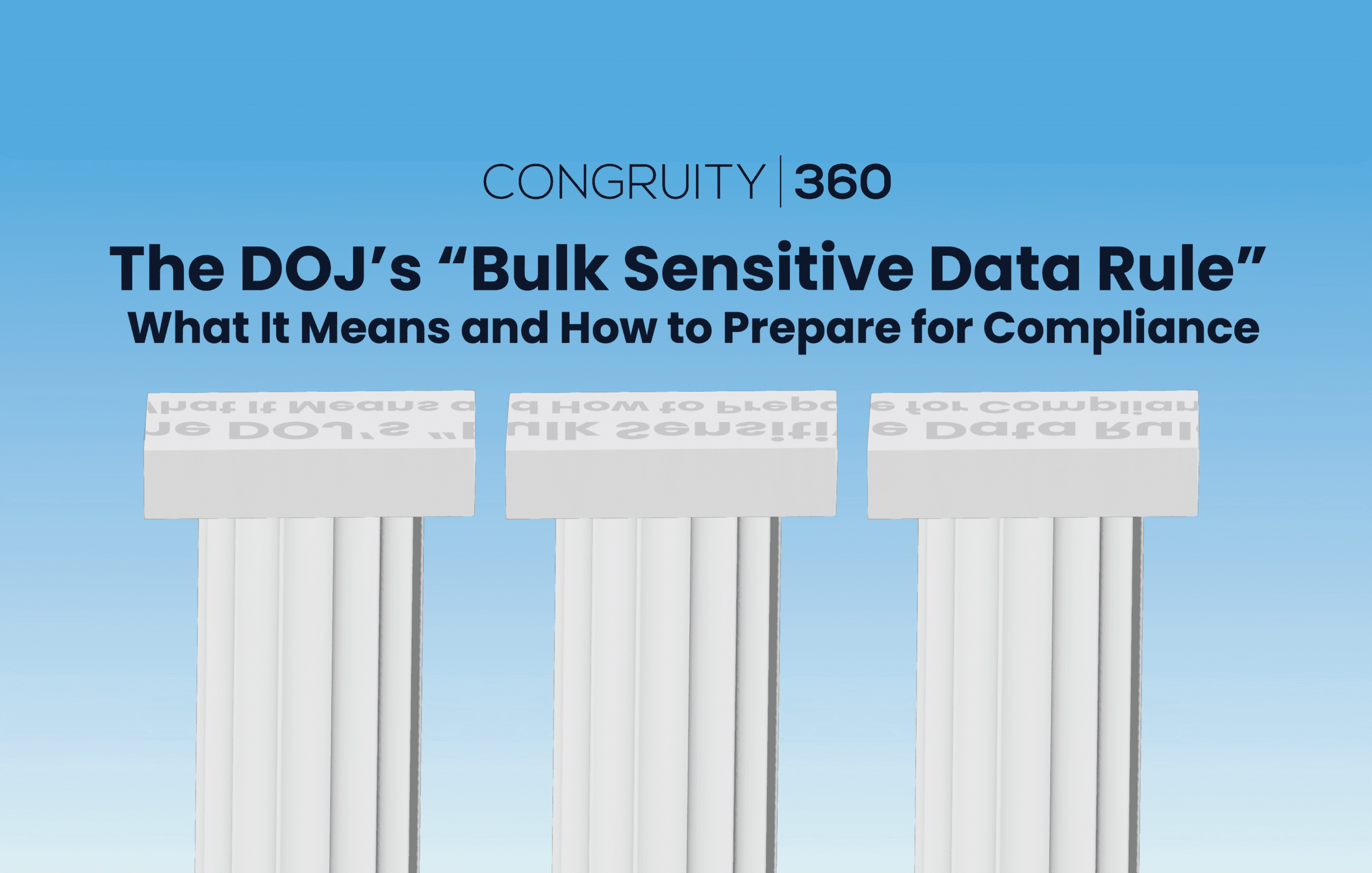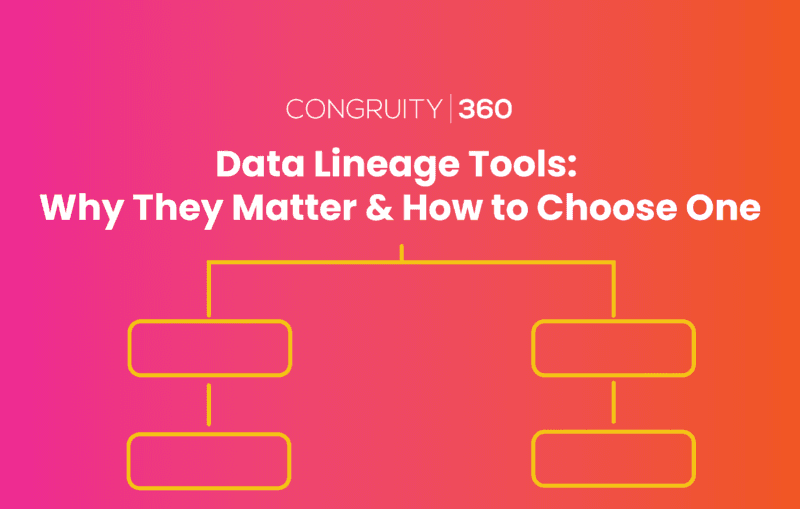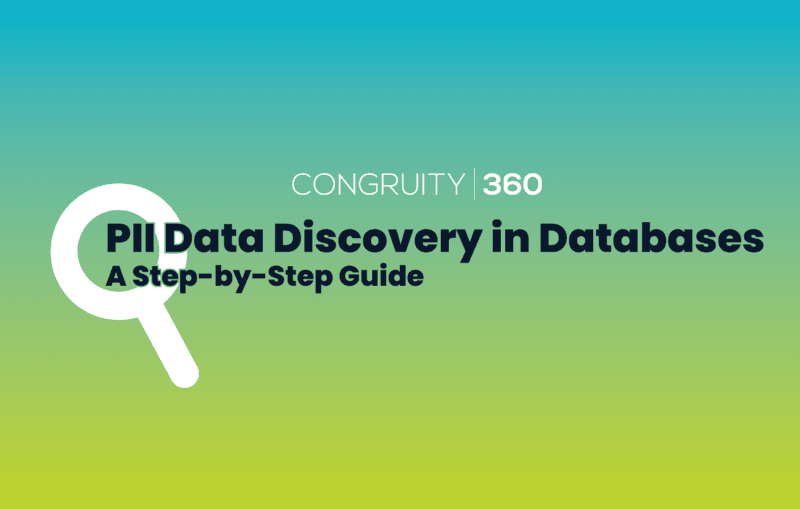The U.S. Department of Justice (DOJ) has officially implemented the Bulk Sensitive Data Rule, a regulation that has broad implications for businesses handling large volumes of sensitive personal or proprietary data. If your organization collects, stores, or shares data—especially with foreign entities—this rule likely applies to you. And the stakes are high: failure to comply could result in significant penalties and legal consequences.
In this blog, we’ll break down what the Bulk Sensitive Data Rule is, who it affects, and—most importantly—how to prepare your data strategy to meet compliance obligations.
What Is the DOJ’s Bulk Sensitive Data Rule?
Announced as part of a broader national security framework, the DOJ’s Bulk Sensitive Data Rule aims to protect Americans’ personal and sensitive information from exploitation by foreign adversaries. The rule grants the DOJ authority to review and potentially block certain data transactions that may pose a risk to national security.
Key Aspects of the Rule:
- Scope of Data: Covers health, financial, genetic, biometric, geolocation, and other personally identifiable information (PII).
- Volume Thresholds: Targets bulk data—meaning datasets that contain information on large numbers of individuals, even if anonymized.
- Foreign Relationships: Focuses on data transactions involving “countries of concern” such as China, Russia, Iran, and North Korea.
- Transactional Oversight: Applies not just to data sales but also to transfers, sharing agreements, and certain types of processing.
Who Is Affected?
The rule has a broad reach and can apply to:
- Data Brokers
- Health Tech Companies
- Financial Institutions
- Cloud Storage Providers
- AI/ML Model Developers Using Public or Purchased Datasets
Any U.S.-based company (or foreign company operating in the U.S.) that handles sensitive data in bulk and engages in cross-border transactions may fall under the DOJ’s scrutiny.
What Are the Compliance Obligations?
Organizations must assess whether their data handling practices could be subject to review. Key compliance obligations include:
- Due Diligence: Implement systems to identify when data flows involve high-risk countries or entities.
- Risk Assessment: Conduct formal risk evaluations for third-party relationships involving sensitive data.
- Record-Keeping: Maintain detailed records of data transactions, sharing agreements, and access logs.
- Reporting: Some transactions may need to be reported or reviewed by the DOJ before they proceed.
- Mitigation Measures: Companies may need to demonstrate controls like encryption, access restrictions, or data minimization.
How to Prepare for DOJ Bulk Sensitive Data Rule Compliance
1. Conduct a Comprehensive Data Audit
Begin with a full audit of your data landscape. Identify what types of sensitive data you hold, where it resides, who has access, and with whom it’s shared.
2. Classify Data According to Risk
Implement a data classification framework to distinguish between public, internal, sensitive, and restricted data. Flag datasets that may meet the DOJ’s “bulk” and “sensitive” criteria.
3. Evaluate Third-Party Relationships
Review all vendors, partners, and subcontractors—especially those with international ties. Determine if any data flows to countries designated as adversarial under the rule.
4. Implement Data Minimization Practices
Only collect and retain data that is strictly necessary for your business purposes. Eliminate redundant or unused datasets.
Read: What Should I Do With All My Old Unstructured Data?
5. Strengthen Data Security Protocols
Adopt robust encryption for data at rest and in transit, enforce strict access controls, and monitor for unusual data access patterns.
6. Establish a DOJ Compliance Policy
Create internal policies that align with DOJ expectations. Include escalation procedures if a data transaction might trigger DOJ review.
7. Use Automated Data Governance Tools
Deploy tools that can automate data classification, monitor cross-border data flows, and flag risky transactions in real time.
Industry suggestion: Comply360
Complying with the Bulk Data Rule
The DOJ’s Bulk Sensitive Data Rule is a major shift in how sensitive data is regulated in the U.S., especially with national security in mind. Organizations must act now to understand their exposure and implement the necessary safeguards. Non-compliance isn’t just a regulatory risk—it could also expose your business to reputational and operational damage.
By proactively auditing your data, assessing third-party risks, and implementing strong governance tools, you’ll be better positioned to meet compliance requirements and protect your organization.
Need Help with Data Compliance?
We can help you conduct a data audit, implement classification frameworks, and design secure, compliant data workflows. Contact us today to get started.





